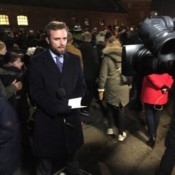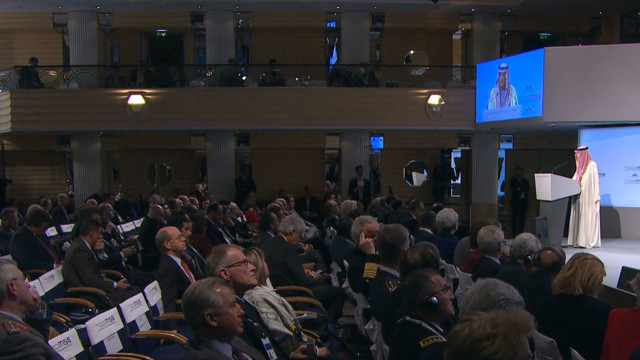Consider the context of this year’s Munich Security Conference. When diplomats, politicians, security experts and journalists from all over the world gathered for this unique event in February 2017, there was a sense among many that the world as we know it was at risk of imploding.
The Democratic People’s Republic of Korea had just test fired a missile: analysts predicted a showdown was just months away.Europe faced a wave of elections that appeared to offer right wing nationalists a genuine shot at power: some worried the European Union itself might unravel.
Donald Trump had just become U.S. president: “An Insurgent in the White House” ran The Economist’s front page.
Here we are twelve months on, and the EU has survived and is prospering economically, NATO is still intact, and dialogue may just get another chance on the Korean Peninsula.
CGTN’s Guy Henderson reports.
The theme of this year’s event was “To the Brink – and Back?”
“I’m not fully re-assured,” conference chair Wolfgang Isghinger said in his concluding remarks.
Underpinning discussions over crisis points from Asia to the Middle East, is a debate about an apparent change in thinking in Washington, and where it might lead.
One of the architects of the new National Security Strategy, HR McMaster, hopes it will help build peace through strength. U.S. Secretary of State Rex Tillerson’s deputy, John Sullivan, was in Munich as well, and argued that Washington had to raise its game to meet new threats.
Russia, Iran and the Democratic Republic of Korea were the focus of their ire.
China is now also a strategic rival in this U.S. doctrine. To Beijing’s most senior diplomat at the conference, what America claims to describe is in fact a prescription.
“Will we turn each other into rivals, as certain American documents suggest?” Fu Ying asked the audience rhetorically.
That could bring Europe closer to a crossroads. As America looks to combat Chinese economic gains, for example, its Trans-Atlantic partners seem more willing to cooperate.
Former NATO Secretary General and one-time Danish Prime Minister Anders Fogh Rasmussen, told CGTN that Europe should embrace China’s One Belt One Road Initiative as an effort to engage.
But critics see One Belt on Road as a grand geopolitical grab as much as an economic corridor.
As the threat of major conflict rises, diplomats in Munich are divided between those who see a need to push back for fear of being trampled on, and others who worry that makes war a self-fulfilling prophecy.
 CGTN America
CGTN America

